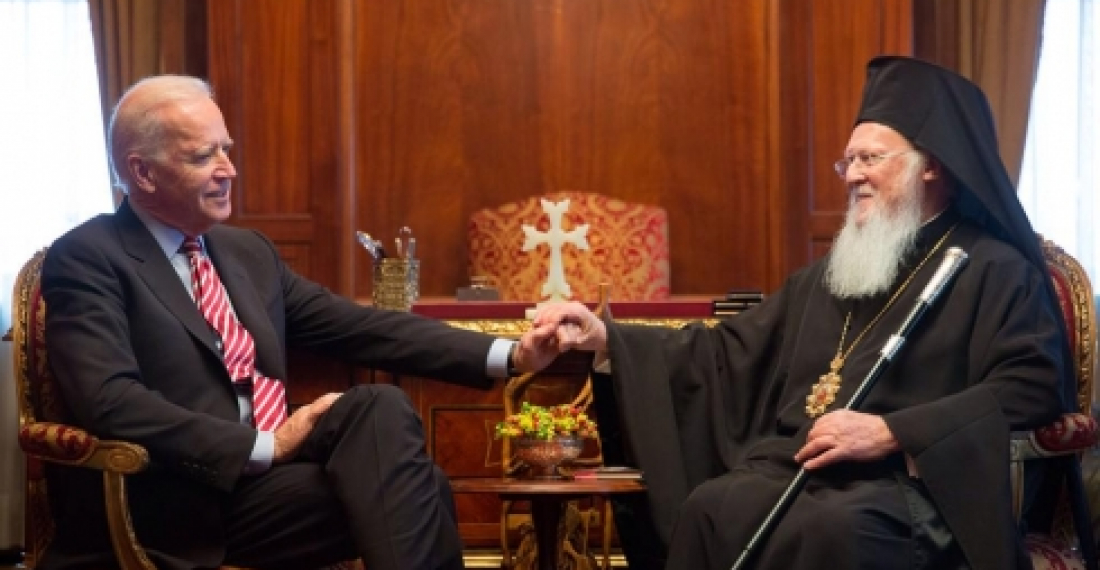U.S. Vice President Joe Biden paid a visit to Patriarch Bartholomew I on Nov. 23, as part of his official trip to Turkey. Biden and his wife Jill Biden visited the Orthodox Patriarchate in Istanbul's historic Fener district, where they were greeted by Patriarch Bartholomew I.
While only a small group of journalists were invited inside the Patriarchate, Biden and Bartholomew held a private meeting.
Bartholomew accompanied the Bidens during their visit to the Greek Orthodox Church of St. George, located inside the premises of the Patriarchate, where they lit a candle together.
High security measures were taken before the Bidens' visit to the Patriarchate, which lasted around one-and-a-half hours. The visit came amid increasing concerns in western countries abouth the fate of christian communities in a number of countries in the Middle East and the Leavnt, some of who recognise the patriarch of Constantinople as their religious leader.
The couple later visited the Süleymaniye Mosque on Istanbul's historical peninsula, where officials gave them information about the construction of the historic mosque.
The U.S. vice president arrived in Istanbul late on Friday for official talks with Turkey's top political figures, amid a difference of views over the crisis in Syria. During his visit, Biden met with Turkish President Recep Tayyip Erdoğan, Prime Minister Ahmet Davutoğlu and President of the Turkish Republic of Northern Cyprus Derviş Eroğlu. He also addressed a session of the Atlantic Council\\\'s sixth annual Energy and Economic Summit.
source: commonspace.eu with Hurriyet Daily News.
Photo: US Vice President Biden with the Patricarch of Constaninople, Bartholomew I in Istanbul on 23 November 2014. (Picture courtesy of the White House).







